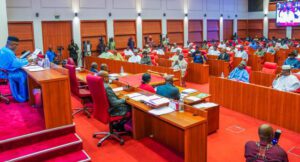Konga leverages e-Commerce to revolutionize agriculture sector
By Idris Bakare
Konga has once again led from the front, revolutionizing agriculture in Nigeria by leveraging e-Commerce in helping rural farmers access better agricultural inputs such as crop seedlings, fertilizers and much more at highly competitive prices.
The initiative, a first in Africa, is a partnership with UKAid-funded Frontier Technology livestreaming established in 2016 to help innovators apply frontier technologies to the biggest challenges in development.
Through Konga, the agricultural sector – one of the most important in Nigeria in view of the fact that it provides livelihoods for about 70 per cent of the rural population – is receiving a much-needed turnaround aided by technology.
Konga is bringing its suite of advanced competencies to bear in revolutionizing this sector.
Specifically, Konga is making it easy for these rural, smallholder farmers to purchase agricultural inputs online, meeting demands that have for long defied government and other allied agencies. Further, the e-Commerce giant is providing farmers in hard-to-reach, far-flung and under-served locations in Nigeria with an easy to use platform for listing and purchasing agricultural inputs and products, as well as providing logistics through KXpress and a reliable payment solution through KongaPay within the ecosystem.
Konga’s e-Commerce platform is accessible to rural farmers with low internet connectivity, allowing them to buy inputs at competitive prices from agro-dealers and suppliers, with pre and post-pay options.
So far, Konga has recorded commendable success with the initiative, onboarding 12 merchants, recording over 7000 hits on the website and successfully delivering scores of orders.
Meanwhile, the pilot initiative, which has seen a fruitful marriage of e-Commerce and agriculture, has also seen potential talks of Konga making additional critical investments in agri-tech.
This was confirmed by Nick Imudia, Co-CEO, Konga Group, who described the experience garnered from the project as very insightful and useful.
‘‘The agricultural sector in Nigeria requires government to better channel its resources in helping it to scale. There are fears of famine or food insecurity in Nigeria in the next six months as recently predicted by the United Nations.
“But our experience shows that Nigerian rural farmers have the capacity to feed the nation and even have some left over for export. All they need is the right support.
‘‘We are doing our best in this area as well but we cannot do it alone. What determines whether we grow the category or invest is the number of customers we get. Do we get unique requests for products? Do we see growth in specific regions that would mean opening warehouses or new logistical hubs?’’ he concluded.




